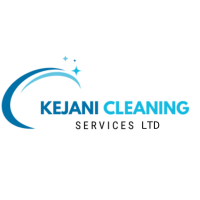Maintaining a clean and hygienic office kitchen cleaning is crucial for the health and well-being of all employees. A well-maintained kitchen not only promotes a healthy environment but also boosts morale and productivity. This comprehensive guide will provide you with effective strategies and best practices to ensure your office kitchen remains spotless and germ-free.
The Importance of a Clean Office Kitchen
A clean office kitchen is vital for several reasons. It prevents the spread of germs and bacteria, reduces the risk of foodborne illnesses, and creates a pleasant and welcoming atmosphere for employees. Additionally, a tidy kitchen reflects positively on the company’s culture and values, showcasing a commitment to employee welfare and hygiene.
Establish Clear Kitchen Rules
1. Develop a Kitchen Etiquette Policy
Creating and enforcing a kitchen etiquette policy is the first step in maintaining cleanliness. This policy should outline the expectations for all employees, including:
- Clean as You Go: Employees should clean up after themselves immediately after use. This includes washing dishes, wiping down countertops, and disposing of waste properly.
- Labeling and Storing Food: All food items should be labeled with the employee’s name and the date they were stored. Unlabeled and expired items should be discarded regularly.
- Dishwasher Usage: Establish guidelines for loading and unloading the dishwasher, ensuring it is run and emptied regularly.
2. Assign Kitchen Duties
To ensure the kitchen remains clean, consider assigning specific kitchen duties to employees. Rotating responsibilities can include:
- Daily Cleaning: Wiping down surfaces, cleaning the microwave, and emptying the trash.
- Weekly Tasks: Deep cleaning the refrigerator, restocking supplies, and sanitizing common areas.
- Monthly Maintenance: Checking and cleaning appliances, ensuring they are in good working order.
Implement Effective Cleaning Practices
1. Daily Cleaning Routine
A daily cleaning routine is essential for maintaining a hygienic kitchen. Key tasks include:
- Surface Cleaning: Wipe down all countertops, tables, and other surfaces with a disinfectant spray.
- Dishwashing: Ensure all dishes, utensils, and cookware are cleaned promptly. Use a dishwasher when available, as it sanitizes better than hand washing.
- Trash Management: Empty trash bins daily and replace liners to prevent odors and pest infestations.
2. Weekly Deep Cleaning
Weekly deep cleaning ensures that hidden dirt and grime do not accumulate. Important tasks are:
- Refrigerator Maintenance: Remove all items, clean shelves and drawers with a mild detergent, and discard any expired or spoiled food.
- Microwave Cleaning: Use a microwave-safe bowl filled with water and lemon slices to steam clean the interior. Wipe down all surfaces afterward.
- Floors and Cabinets: Sweep and mop the floors thoroughly. Clean the exterior and interior of cabinets to remove dust and spills.
3. Monthly Maintenance Checks
Monthly maintenance helps in identifying and addressing potential hygiene issues before they become problems. Focus areas include:
- Appliance Inspection: Check all kitchen appliances for proper functioning and cleanliness. Pay attention to the refrigerator, microwave, coffee maker, and toaster.
- Pantry Organization: Review the pantry for expired or unwanted items. Clean and organize shelves to ensure easy access and maintain order.
- Pest Control: Inspect for signs of pests and take preventive measures, such as sealing gaps and using natural repellents.
Stock the Kitchen with Essential Supplies
A well-stocked kitchen is easier to maintain. Ensure you have the following supplies on hand:
- Cleaning Products: Disinfectant sprays, dish soap, sponges, microfiber cloths, and paper towels.
- Waste Management: Trash bags, recycling bins, and compost containers.
- Hygiene Products: Hand sanitizer, hand soap, and disposable gloves.
- Food Storage: Plastic wrap, aluminum foil, zip-lock bags, and food storage containers.
Promote Personal Hygiene and Safety
Encouraging personal hygiene among employees is vital for maintaining a clean office kitchen. Here are some tips:
1. Hand Washing
Ensure that all employees understand the importance of washing their hands before and after handling food. Provide clear signage and adequate supplies, such as soap and paper towels.
2. Use of Personal Protective Equipment (PPE)
During food preparation, employees should use PPE, such as gloves and aprons, to minimize contamination. Make these items readily available and ensure they are disposed of properly after use.
Foster a Culture of Cleanliness
Creating a culture of cleanliness requires ongoing effort and communication. Here are some strategies:
1. Regular Training and Reminders
Provide regular training sessions on kitchen hygiene and safety practices. Use reminders, such as posters and emails, to reinforce these practices.
2. Lead by Example
Management should model good kitchen habits to encourage employees to follow suit. When leaders demonstrate a commitment to cleanliness, employees are more likely to adhere to the rules.
3. Feedback and Improvement
Encourage employees to provide feedback on the kitchen’s cleanliness and suggest improvements. Regularly review and update policies to ensure they remain effective and relevant.
Benefits of a Clean Office Kitchen
A clean office kitchen offers numerous benefits, including:
- Health and Safety: Reducing the risk of illnesses and ensuring a safe environment for food preparation and consumption.
- Employee Satisfaction: Creating a pleasant and comfortable space that employees can enjoy.
- Productivity: Minimizing distractions and disruptions caused by a dirty and disorganized kitchen.
By implementing these strategies and fostering a culture of cleanliness, you can maintain a hygienic and welcoming office kitchen that benefits everyone.

0 Comments